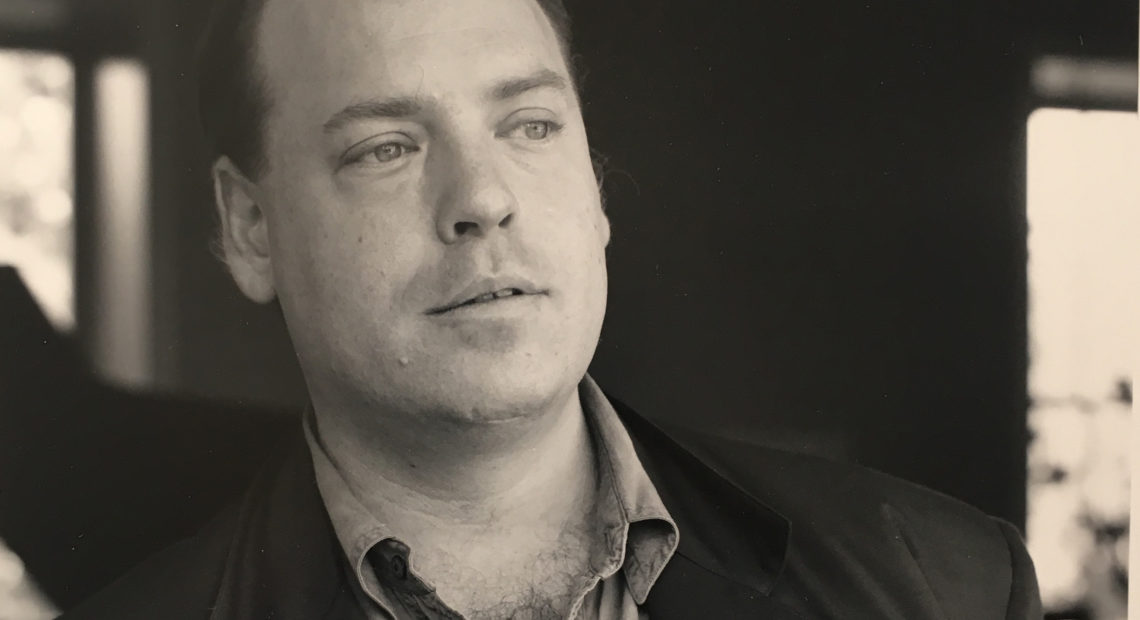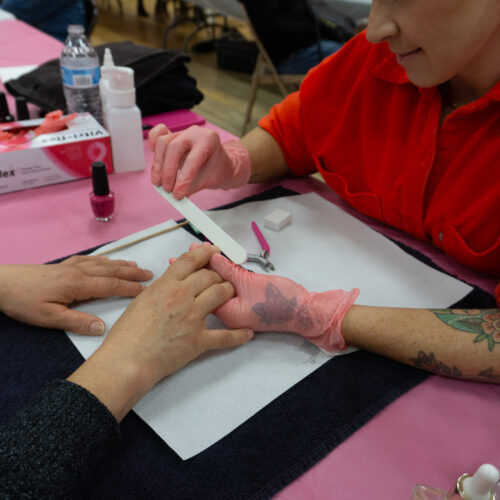
Sanford Sylvan, A Baritone On His Own Terms, Dies At 65
PHOTO: Baritone Sanford Sylvan led a singular career of his own devising. CREDIT: William Clift/Nonesuch Records
BY TOM HUIZENGA, NPR
The beloved American baritone Sanford Sylvan died Tuesday at his home in Manhattan. Lenore Sylvan, the singer’s mother, along with his sister Gwen Sylvan and brother Seth Sylvan confirmed the death to NPR Thursday morning. Marc Mandel, a close family friend and director of program publications at the Boston Symphony Orchestra, said that the death was “entirely sudden” and that it was “deemed to be of natural causes.” Sylvan was 65.
Although Sylvan may be best remembered by a wider public for his arresting performances in productions by Peter Sellars, including the director’s decidedly modern takes on Mozart’s Così fan tutte and The Marriage of Figaro, which were broadcast on PBS in the 1980s, he ultimately avoided the glitzy life of an opera star.
Soprano Susan Larson, who sang in three operas with Sylvan, remembers his sense of humor. “He could be seriously funny, or funnily serious, somber and crazy at any time in rehearsal and performance,” she wrote in an email to NPR. “He was just so there, so intent and intense … Così [fan tutte] is my favorite Sandy opera, because I got to sing with him the most. Those ensembles! Those finales! The memories of that one Così performance that was perfect from start to finish: We kept meeting each other backstage where he would whisper, ‘Damn! We can do no wrong tonight!’ Once in a lifetime, we were all gods together.”
Early in his career, Sylvan made an unusual move away from New York to Boston, where he focused on singing with small forces, including performing many Bach cantatas at Emmanuel Church, where he first met Sellars.
Sylvan became widely praised as a recitalist, specializing in art songs – from Schubert song cycles to new music from American composers such as John Adams. In 1989, Sylvan debuted Adams’ The Wound-Dresser, set to a text by Walt Whitman. The recording, released the same year and nominated for a Grammy, became an immediate favorite among Sylvan’s admirers.”In vocal recitals, it’s just you and the pianist speaking to people about intimate topics, using the most direct, honest form of communication you can,” Sylvan told the Los Angeles Times in 1998.
At another point in his career, Sylvan quit singing for nine months, leaving for Scotland to meditate on what his life with – and without – music should be, as he told author Peter G. Davis for the book The American Opera Singer, published in 1997:
“I needed to find out who I was when I wasn’t a singer. I had to take that time to do it myself, so I stopped. And it was a great thing. It helped me understand that it’s my choice – that we can’t become victims of a system that we think owns us. Now I sing because I choose to, and my career goes the way it goes because I make the choices.”
Sylvan’s warm, agile baritone, and the way he used it, made him an uncommonly communicative singer. “Sanford makes the performance as human as possible, getting out of the way to let the poet and composer speak,” David Breitman, Sylvan’s longtime artistic partner and accompanist, told the Los Angeles Times in 1998.
Sylvan, born Dec. 19, 1953, was raised in New York and fell in love with music at an early age. “His dedication to music started when he was about five years old,” Sylvan’s mother recalls. “He had me going to pick up records from the library because they wouldn’t give them to him.”
Sylvan fibbed about his age when he applied to the Juilliard School’s pre-college division long before he reached the prescribed age of 16. He entered the Manhattan School of Music after high school, and earned money by ushering at the Metropolitan Opera. At Tanglewood, the Boston Symphony Orchestra’s summer home in the Berkshire Mountains, Sylvan studied with the revered American soprano Phyllis Curtin, who emphasized that he sing in unaffected American English, something composers like John Adams have admired.
“Sandy has this way of singing American English, with its peculiar rhythms and making it sound utterly natural and beautiful to the ear,” Adams told the Los Angeles Times in 1992.
Sylvan shined in other Sellars-Adams projects, including performing the wheelchair-bound lead role in Adams’ opera The Death of Klinghoffer in 1991 and as Chou En-lai in Adams’ first opera, 1987’s Nixon In China, the recording of which won a Grammy in 1988. He worked with many of the world’s renowned conductors, including Pierre Boulez, Simon Rattle, Christoph von Dohnanyi and Christopher Hogwood, and he sang in many of the world’s top opera houses and concert halls.
In recent years, Sylvan concentrated on his teaching. He held positions at Tanglewood, where he was master teacher in residence, at Montreal’s McGill University and at Bard College, where he taught in the graduate vocal arts program. He was a faculty member at the Juilliard School since 2012.
“Not only was he a professional singer,” said Sylvan’s sister Gwen, “as a teacher of voice, he allowed his students to emerge, to really find their own voices. I look at his life as such a full, total life. It’s extraordinary in terms of his gift as singer – his voice was absolutely healing. But his teaching, in the latter part of his lifetime — he was so devoted to his students, and they were to him.”
NPR’s Andrew Flanagan contributed additional reporting.















